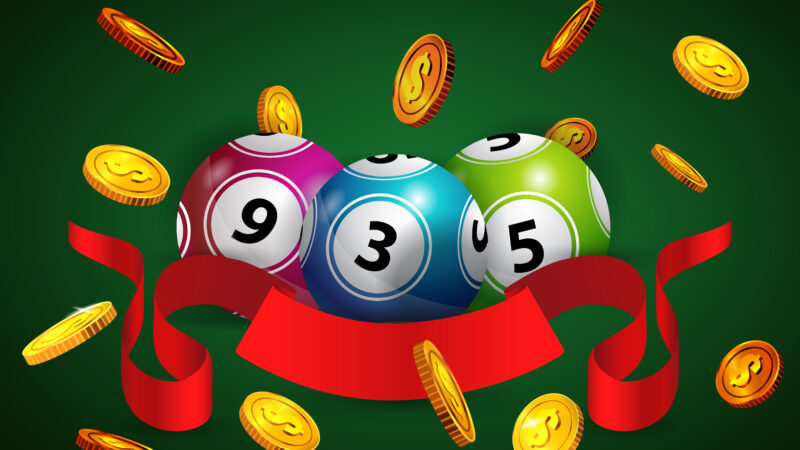The Rising Need for Gaming Rehab in Pune

In recent years, Pune has emerged as one of India’s fastest‑growing tech and educational hubs. With thousands of students, young professionals, and growing access to high‑speed internet and affordable smartphones, the city is abuzz with opportunities. However, behind this vibrant progress, a new challenge is quietly growing: gaming addiction, or internet gaming disorder, that many are not yet fully equipped to address. This blog explores why a gaming rehab in Pune becoming a necessity , what signs to watch for, and what the city can do to build effective support systems.
Understanding Gaming Addiction
“Gaming addiction” refers to excessive and compulsive video and online gaming that begins to interfere with daily responsibilities, health, relationships, or mental well‑being. The World Health Organization (WHO) has recognized “gaming disorder” as a behavioral health condition.
In India, several studies have found non‑trivial rates of internet gaming disorder (IGD) among adolescents and young adults — figures ranging from 1.3% to nearly 20% depending on definitions, age groups, and methods.
Thus, the risk in Pune is real: the city’s demographics—large youth population, tech access, academic pressures, social isolation in some cases—create fertile ground for problematic gaming behavior.
Why Pune, Why Now: Risk Factors & Triggers
Here are some of the specific local and societal factors that make gaming addiction more likely in Pune, and why rehab services are increasingly needed:
- High Density of Students & Young Professionals
Pune is home to many colleges, engineering and management institutes, and rapidly expanding IT / startup sectors. Many young people move here, often away from home, which can lead to loneliness, lack of structure, or stress—all risk factors that gaming can temporarily soothe. - Easy Access to Technology
With affordable smartphones, good broadband/mobile internet, and widespread penetration of gaming apps, the barrier to entering intensive gaming sessions is low. Multiplayer, social, or money‑based gaming apps increase engagement (and risk). - Academic & Career Pressure
Many young people in Pune undergo high pressure—both from their own goals and external expectations—to perform well in academics, entrance exams, then careers. That stress sometimes drives escape behaviors: gaming as relief, or delaying tasks, which then exacerbates stress in a negative loop. - Pandemic & Social Changes
The COVID‑19 lockdowns and post‑pandemic social shifts increased screen time for many, reduced in‑person socialization, and increased reliance on digital entertainment. Studies show a sharp rise in gaming usage and adverse effects on mental health. - Lack of Awareness & Stigma
Many people (including families) do not recognize the early signs of problematic gaming. Even when they do, there is social stigma around seeking mental health or addiction rehab services. This means that by the time professional help is sought, the problem is often deeply entrenched.
Signs That Gaming Has Become a Problem
To justify the need for gaming rehab, it helps to know what to look for. Here are common warning signs:
- Loss of control: You try to cut down, set limits, but keep gaming more than you intended.
- Neglect of responsibilities: Skipping classes, missing deadlines, avoiding chores, or letting work suffer.
- Isolation & relationship strain: Pulling away from friends/family, becoming irritable when asked to stop or reduce gaming.
- Physical health symptoms: Poor sleep, headaches, dry eyes, weight gain or loss, posture issues.
- Emotional symptoms: Feelings of anxiety, depression, restlessness when not able to play; using gaming as escape from stress.
- Interference with life goals: Impaired performance at school/work, reduced social or physical activities because of gaming.
When several of these are present over weeks or months, it may indicate gaming addiction, not just casual overuse.
What Is Gaming Rehab? What Does It Typically Involve?
Gaming rehab refers to structured support—therapeutic, psychological, medical—that helps individuals reduce or control gaming behavior and re‑integrate healthier habits.
Typical components may include:
- Assessment / Diagnosis: Psychological evaluation, identifying co‑occurring issues (anxiety, depression, ADHD, etc.).
- Cognitive Behavioral Therapy (CBT): Helps identify triggers, change thought patterns that lead to excessive gaming.
- Behavioral Interventions: Time‑management skills, scheduled “digital detox”, substitute activities.
- Holistic Support: Physical activity, nutrition, sleep hygiene, mindfulness or meditation practices.
- Family Therapy & Social Support: Involving parents, peers to improve relationships, communication, and create external accountability.
- Aftercare & Relapse Prevention: Ongoing check‑ins, support groups, tools to manage cravings or relapse triggers.
Status of Gaming Rehab in Pune: Gaps & Existing Initiatives
Pune has some mental health facilities and de‑addiction centers that address behavior addictions, but gaming‑specific rehab is less common or not widely advertised. Some observations:
- Clinics like Trucare Trust Pune list gaming addiction among issues they treat, including therapy, counseling, digital detox and aftercare.
- Some treatment centres mention holistic offerings: meditation, fitness, skill building.
- Cost and accessibility vary; many centers are still general mental health or addiction centres—not all staff have specialized training in behavioral/digital addictions.
Gaps include:
- Lack of public awareness and reliable, centralized information about which clinics are gaming‑rehab competent.
- Insufficient number of specialist therapists trained in behavioral/digital addiction.
- Limited options for residential rehab or retreats specifically for gaming addiction.
- Cost can be prohibitive for some.
Why Pune Needs More Gaming Rehab Services: The Consequences of Delay
If the city does not scale up its rehab infrastructure around gaming addiction, several risks emerge:
- Mental Health Crisis: Increased rates of depression, anxiety, social isolation, possibly suicidal ideation among youth.
- Academic & Career Loss: Poor performance, dropouts, reduced productivity.
- Physical Health Issues: Sedentary lifestyle leads to issues like poor posture, obesity, vision problems, sleep disorders.
- Social & Family Impact: Strained relationships, trust issues, conflict, possible long‑term social withdrawal.
- Economic & Regulatory Pressure: As the nation debates regulations around fantasy gaming, real‑money gaming, etc., unmet public health needs might exacerbate social costs.
What Pune, Stakeholders & Individuals Can Do
To respond to this rising need, action is required at multiple levels:
- Awareness Campaigns
Schools, colleges, community centres can run seminars or workshops to teach students, parents about healthy gaming habits, signs of addiction, resources for help. - Training Mental Health Professionals
Encourage psychiatric clinics, psychologists, counselors in Pune to get training in digital/behavioral addiction. Develop specializations or certifications. - Specialized Rehab / Day‑Care / Retreats
More centers offering residential or intensive outpatient programs focused on gaming (not just substance abuse). These may include digital detox, therapy, physical activity. - Policy & Regulation Support
Municipal health departments or state government can include gaming disorder in public health mental health programs, subsidize rehab facilities, and support research into prevalence locally in Pune. - Family / Community Support
Support groups for sufferers and their families; peer counseling; online/offline networks where people share stories, coping strategies. - Individual Actions
- Self‑monitoring: keeping logs of gaming time.
- Setting boundaries: fixed gaming hours; turning off notifications; avoiding gaming before bed.
- Alternative hobbies: physical exercise, arts, social clubs, volunteering.
- Seeking help early: consulting mental health professionals or rehab when signs appear.
Conclusion: Towards a Balanced Digital Life
Pune stands at a crossroads. On one side, the city offers innovation, education, global connectivity, and opportunity. On the other, if gaming addiction grows unchecked, it threatens to erode mental health, academic and social wellbeing. Establishing robust gaming rehab infrastructure is no longer optional—it is a necessity.
By combining awareness, specialized treatment, trained professionals, community involvement, and policy backing, Pune can ensure that digital entertainment remains a source of joy—not compulsion or suffering. For those feeling overwhelmed by gaming habits—or seeing signs in loved ones—reaching out for help is the first powerful step toward reclaiming balance.



